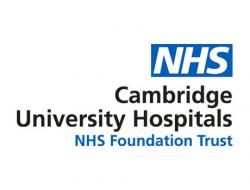
- Vasculitis
- Trials closed
CHiC TRIAD2
Cambridge / Hinxton Centre for Translational Research in Autoimmune Disease 2
Research summary
Autoimmune diseases are common, chronic and often severe. Both the diseases and the toxic therapy often required for them have substantial morbidity and mortality. As autoimmune diseases are complex, clinical classification of them is poor and disease activity is hard to determine. Toxic treatment is therefore given to many who do not require it, putting them at unnecessary risk of adverse drug reactions (ADRs). Treatment is also given for arbitrarily defined and often unnecessarily long courses as it is not possible to predict who will respond quickly, when an adequate treatment resonse has occurred, or when ADRs are more likely.
The Cambridge / Hinxton Centre for Translational Research in Autoimmune Disease 2(CHiC TRIAD2) is a group of clinicians, bioinformaticians, and immunologists running a translational research programme integrating clinical and laboratory data with that generated by modern ‘post-genomic’ technology by applying and developing state-of-the-art bioinformatics. For the past three years it has been focused on the autoimmune diseases systemic lupus erythematosus (SLE) and vasculitis, primarily ANCA-associated small vessel vasculitis (AASV), but now plans to expand into other autoimmune diseases including the inflammatory bowel diseases, Crohn’s disease and ulcerative colitis. Many aspects of these diseases, as with the other autoimmune diseases studied, are poorly understood and therefore this study aims to define patterns of gene expression that will allow prediction of response to treatment, uncover novel ways of determining disease activity and of predicting drug toxicity. Analysis of the data obtained over the past three years has proved extremely promising, clearly demonstrating the ability of our approach to identify novel patient subgroups based on gene expression that have direct clinical relevance. Tests generated from these findings will allow better targeted therapy, having a major effect on drug-related toxicity, treatment efficacy, and thus cost to the NHS.
We plan to recruit 200 patients per year: Each patient will have blood taken for micro-array analysis at initial recruitment when disease is active, again at 3 months after commencement of drug treatment and at one year after initial recruitment. The sampling schedule may need to be altered/delayed by the Vasculitis and Lupus Service Team or non-Nephrology Specialist Consultant if deemed clinically appropriate. Individual cases will be discussed at the weekly TRIAD meeting.
Funders and sponsors
Funders: Medical Research Council, Wellcome Trust, Kidney Research UK, Sanofi Genzyme, Evelyn Trust and NIHR Cambridge BRC
Sponsors: University of Cambridge
Chief investigator
Prof Ken Smith
Contact details
Senior Clinical Trials Coordinator: Dr Maria King






